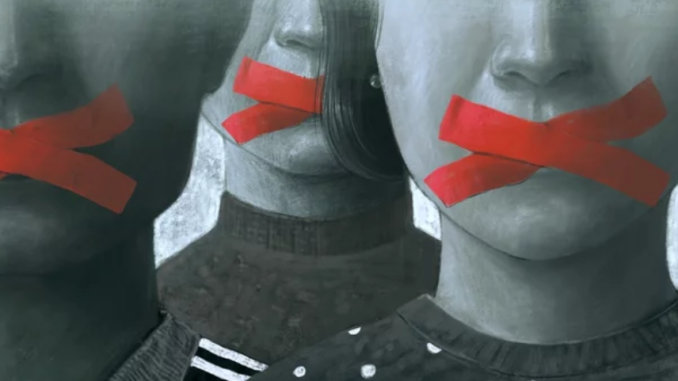
Michigan’s Democratic House passed legislation on Tuesday that enables attorneys to shut down “hate speech.” The new House Bill 4474 is a vague and unconstitutional censorship law that determines “feeling threatened” as reasonable grounds to prosecute offenders.
The punishment for making someone “feel threatened” in Michigan is five years in jail and a $10,000 fine.
An alternate sentence proposes “community service” in order to “enhance the offender’s understanding of the impact of the offense upon the victim and wider community.”
The problematic language about “feelings” can be found in the bill’s definition of “intimidation” as “willful course of conduct, involving repeated or continuing harassment of another individual that would cause a reasonable individual to feel terrorized, frightened, intimidated, threatened, harassed, or molested, and that actually causes the victim to feel terrorized, frightened, or threatened.”
Any kind of discrimination against a minority or a particular group of people is unacceptable and should be taken seriously. Michigan’s new bill, which prosecutes based on feelings, does not take it seriously. Someone’s subjective feelings, or even a lie about his or her subjective feelings, could land somebody jail time and ruin a life.
“Hate speech” accusations are designed with one outcome in mind: censorship. “Hate speech” is usually not hateful speech. What often constitutes “hate speech” is any language that opposes popular narrative. This label is causing damage to our nation. We find frequent examples of its effects in how it muffles free speech on college campuses.
In a May exclusive with Fox News, Alex Morey of the Foundation for Individual Rights and Expression said that many college students are adopting a “victim mentality” and thus approve of censorship to combat their perceived persecutors. FIRE deals with legally ensuring that each student is able to use his or her voice.
A 2022 study by the Knight Foundation found that the percentage of college students who felt their right to free speech was protected dropped from 73% in 2016 to 47% in 2021. The study suggested that “key events shaping the past two years, such as the COVID-19 pandemic, the racial justice movement and the 2020 election, have only added deeper dimensions to the dialogue around free speech playing out on campus and in society at large.”
As the nation began to adopt extreme positions on racial justice and COVID-19 restrictions, so did college administrations. Any opposition was met with intense backlash. Campuses began labeling dissent as “hate speech.”
This is a perilous trend. We have observed that the public does not receive censorship laws well. According to a Washington Examiner column earlier this year, a 2017 study from the European Journal of Political Research found that 24% of Western Europeans are antisemitic partly in reaction to “extensive public repression of radical right actors and opinions.”
Censorship laws have been known to backfire. A censorship law based on feelings only further promotes injustice and tyranny. Michigan lawmakers should mind historical realities and tread carefully.
* Article From: The Washington Examiner
